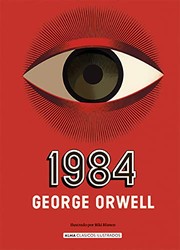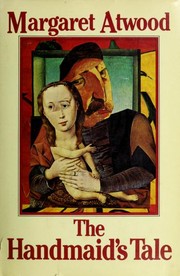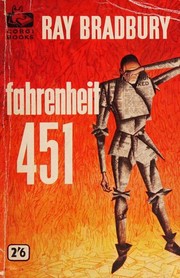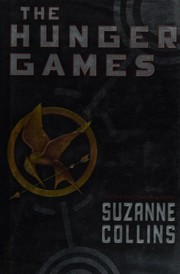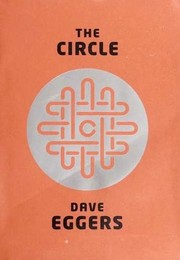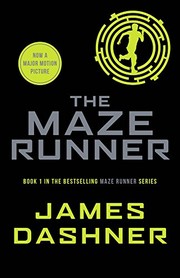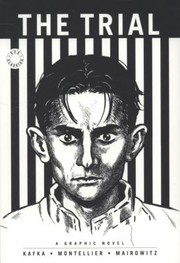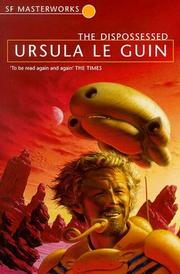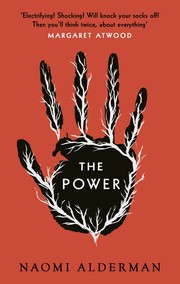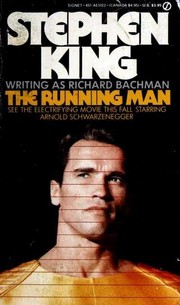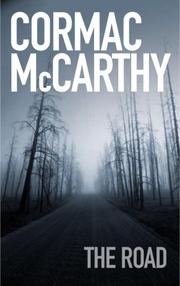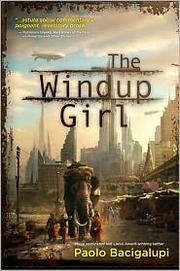Are you ready to dive into the gripping world of government control through the pages of a book? We’ve curated a list of the 20 best books about government control that will captivate and challenge your understanding of power, authority, and resistance. From dystopian futures to historical accounts, these books offer thought-provoking narratives that will leave you questioning the nature of control and its impact on society. Whether you’re a political science enthusiast or simply intrigued by the complexities of governance, these government control books are sure to leave a lasting impression.
Contents
- 1 20 Best Books About Government Control
- 2 1984
- 3 Brave New World
- 4 The Handmaid’s Tale
- 5 Fahrenheit 451
- 6 Animal Farm
- 7 The Hunger Games
- 8 The Giver
- 9 The Circle
- 10 We
- 11 The Maze Runner
- 12 The Trial
- 13 The Iron Heel
- 14 The Dispossessed
- 15 The Power
- 16 The Children of Men
- 17 The Running Man
- 18 The Road
- 19 The Parable of the Sower
- 20 The Plot Against America
- 21 The Windup Girl
- 22 Conclusion
- 23
- 24 20 The Tudor Dynasty Best Books to Read – The 2024 Edition
- 25 The 20 Family Trauma Books: Best 2024 Update and Review
- 26 Tomboys Books: 2024's Collection of 20 Must-Reads
20 Best Books About Government Control
1984
by George Orwell
1984 by George Orwell is a classic dystopian novel that delves into the dangers of totalitarianism and surveillance. Set in a repressive, totalitarian state, the story follows Winston Smith, a low-ranking member of the ruling Party, as he begins to question the oppressive regime’s control over every aspect of life. As he navigates a world where individuality is forbidden and independent thought is a crime, Winston becomes involved in a forbidden love affair and starts to rebel against the Party’s oppressive rule. With its powerful commentary on censorship, propaganda, and the manipulation of truth, 1984 remains a chilling and thought-provoking book on government control, making it a must-read for anyone interested in dystopian fiction or thought-provoking social commentary.
Brave New World
by Aldous Huxley
Brave New World by Aldous Huxley is a thought-provoking dystopian novel that explores a society where individual freedom is sacrificed for stability and control. Set in a futuristic world where technology and conditioning are used to maintain social order, the book presents a chilling vision of a society ruled by a powerful and manipulative government. Huxley’s masterpiece delves into the consequences of a world where conformity is prized over individuality, and where citizens are kept in check through psychological manipulation and surveillance. The novel is a powerful commentary on the dangers of authoritarianism and the loss of personal freedom in the face of government control. It’s a must-read for anyone interested in a thought-provoking exploration of a society where individual agency is compromised in the name of societal harmony.
The Handmaid’s Tale
by Margaret Atwood
The Handmaid’s Tale by Margaret Atwood is a dystopian novel set in the Republic of Gilead, a totalitarian society where women have been stripped of their rights and subjugated by a patriarchal regime. The story follows Offred, a handmaid who is forced to bear children for the ruling class. Atwood’s haunting and thought-provoking narrative explores themes of oppression, power, and resistance. The novel serves as a cautionary tale about the dangers of authoritarianism and the potential consequences of extreme government control. Through its compelling prose and chilling depiction of a society ruled by fear, The Handmaid’s Tale remains a powerful and timely exploration of the impact of oppressive regimes on individual freedoms.
Fahrenheit 451
by Ray Bradbury
Fahrenheit 451, a dystopian novel by Ray Bradbury, is a captivating book on government control and censorship. Set in a future society where books are banned and burned by the government, it follows the story of Guy Montag, a fireman tasked with destroying any remaining literature. However, as he begins to question the oppressive regime and meets rebellious individuals, he embarks on a journey of self-discovery and rebellion against the government’s control. Bradbury’s powerful storytelling and vivid imagery make this a thought-provoking and gripping exploration of the dangers of censorship and the importance of intellectual freedom. This government control book serves as a cautionary tale, reminding readers of the value of knowledge and the consequences of a society ruled by censorship and conformity.
Animal Farm
by George Orwell
Animal Farm by George Orwell is a classic allegorical novel that serves as a powerful commentary on political corruption and the dangers of totalitarianism. Set on a farm, the animals overthrow their human owner and establish their own government, promoting the idea that all animals are equal. However, as the pigs, led by Napoleon, gain control, they begin to abuse their power, and the farm descends into a dictatorship. The novel provides a stark portrayal of how power corrupts, and the inevitable shift from idealism to oppression. With its timeless relevance, Animal Farm remains a thought-provoking book about government control, offering a cautionary tale about the dangers of unchecked authority and the manipulation of language for political gain.
The Hunger Games
by Suzanne Collins
The Hunger Games by Suzanne Collins is a gripping dystopian novel set in a future society where the government exerts a tight grip on its citizens. The story follows Katniss Everdeen, a young girl who volunteers to take her sister’s place in a brutal annual event known as the Hunger Games. In this deadly competition, 24 teenagers are pitted against each other in a televised fight to the death, all orchestrated by the oppressive government. As Katniss fights for survival, she becomes a symbol of resistance against the authoritarian regime, sparking a rebellion among the oppressed people of the districts. The book delves into themes of power, oppression, and survival, making it an intense and thought-provoking read. With its engrossing plot and compelling characters, The Hunger Games is a must-read for anyone interested in a thrilling book about government control.
The Giver
by Lois Lowry
The Giver by Lois Lowry is a thought-provoking novel that delves into the consequences of a society under strict government control. Set in a dystopian world, the story follows Jonas, a young boy who is chosen to be the Receiver of Memories, a role that exposes him to the dark truths of his seemingly perfect community. As Jonas uncovers the unsettling realities of his world, he begins to question the oppressive rules and regulations enforced by the government. The book explores themes of conformity, individuality, and the power dynamics of a society ruled by strict regulations. The Giver challenges readers to contemplate the effects of a society stripped of personal freedoms and the importance of human emotions and experiences. This captivating and thought-provoking novel is a must-read for anyone interested in a gripping story about the consequences of government control.
The Circle
by Dave Eggers
The Circle by Dave Eggers is a dystopian novel that delves into the consequences of unchecked technological advancements and the erosion of privacy. The story follows Mae Holland, who lands a coveted job at the world’s most powerful internet company, The Circle. As Mae becomes increasingly immersed in the company’s culture of transparency and surveillance, she begins to question the ethical implications of the Circle’s relentless pursuit of knowledge and control. The novel serves as a cautionary tale about the dangers of an all-seeing, all-knowing entity, and the potential for abuse of power in the name of progress. The Circle offers a thought-provoking exploration of the impact of technology on society and the individual, making it a compelling read for anyone interested in a thought-provoking book about government control.
We
by Yevgeny Zamyatin
We by Yevgeny Zamyatin is a dystopian novel that explores the theme of government control. Set in a future society, it follows the story of a man named D-503, who lives in a highly regimented world where individuality is suppressed and the government exercises absolute authority. The citizens of this society are known by numbers rather than names, and they are constantly monitored and controlled by the government. The novel delves into the psychological and emotional impact of living in a society where personal freedom is restricted and conformity is enforced. We is a thought-provoking and chilling exploration of the consequences of extreme government control, and it remains a powerful and relevant work in today’s world.
The Maze Runner
by James Dashner
The Maze Runner by James Dashner is a gripping dystopian novel that follows the story of a teenage boy named Thomas who wakes up in a mysterious place called the Glade, surrounded by a massive maze. With no memory of his past, Thomas is thrust into a community of boys who have been trapped in the Glade for years, with no way out. As he tries to unravel the secrets of the maze, he discovers that the Glade is just a small part of a larger experiment controlled by a powerful organization. The book explores themes of surveillance, manipulation, and the struggle for freedom in a world where the government wields absolute power. With its intense plot and complex characters, The Maze Runner is a thrilling read that will keep you on the edge of your seat.
The Trial
by Franz Kafka
The Trial by Franz Kafka is a haunting and enigmatic novel that delves into the complexities of bureaucracy and the perils of a society ruled by an enigmatic and oppressive force. The story follows Joseph K., who is arrested and put on trial by a mysterious and unfathomable court for a crime that is never fully revealed to him. As he navigates the labyrinthine corridors of the legal system, he becomes increasingly entangled in a web of absurdity and confusion, discovering the futility of his attempts to find justice in a world governed by Kafkaesque rules. The novel’s exploration of the individual’s struggle against an all-powerful and inscrutable authority makes it a compelling and thought-provoking read for anyone interested in the complexities of government control.
The Iron Heel
by Jack London
The Iron Heel by Jack London is a gripping dystopian novel that explores the rise of a tyrannical oligarchy in the United States. Set in the early 20th century, the book follows the protagonist as he becomes involved in a revolutionary movement against the oppressive government control. London’s visionary work delves into themes of political manipulation, social inequality, and the struggle for freedom in a society ruled by a powerful elite. Through its vivid storytelling and thought-provoking narrative, The Iron Heel serves as a cautionary tale about the dangers of unchecked authority and the importance of challenging oppressive regimes. This compelling book about government control is a must-read for anyone interested in political fiction and the dynamics of power.
The Dispossessed
by Ursula K. Le Guin
The Dispossessed by Ursula K. Le Guin is a thought-provoking science fiction novel that delves into the complexities of societal structures and the impact of government control. Set in a dual-world system, the story follows the protagonist, a physicist named Shevek, as he navigates the contrasting political ideologies of the capitalist planet of Urras and the anarchist society of Anarres. Through Shevek’s experiences, the novel explores themes of freedom, individuality, and the consequences of power dynamics. Le Guin’s masterful storytelling and intricate world-building make this a compelling read for anyone interested in a thought-provoking book about government control and its effects on society.
The Power
by Naomi Alderman
The Power by Naomi Alderman is a thought-provoking and electrifying novel that explores the complex dynamics of power and its impact on society. Set in a world where women develop the ability to produce electric shocks, the book examines how this newfound power shifts the balance of power between men and women. As women gain control over their physical strength, they also gain control over the social and political structures that have oppressed them for centuries. The novel delves into the implications of this shift in power, challenging traditional gender roles and exploring the corrupting influence of power. Alderman’s compelling narrative raises important questions about the nature of power and its impact on society, making it a compelling read for anyone interested in a thought-provoking book about government control and its consequences.
The Children of Men
by P.D. James
The Children of Men by P.D. James is a dystopian novel set in a world where humanity faces extinction due to mass infertility. The government control is omnipresent, and society is on the brink of collapse. The protagonist, Theo, finds himself caught up in a dangerous conspiracy when he is tasked with protecting the first pregnant woman in twenty years. As he navigates through the bleak and oppressive landscape, Theo uncovers the dark truths about the ruling powers and their ruthless grip on society. The novel is a gripping exploration of power, hope, and the resilience of the human spirit in the face of overwhelming government control.
The Running Man
by Stephen King (as Richard Bachman)
The Running Man is a dystopian thriller by Stephen King writing as Richard Bachman. Set in a future society where the government exerts oppressive control, the story follows Ben Richards, a man who volunteers for a deadly game show in order to provide for his family. The game, The Running Man, pits contestants against ruthless hunters in a fight for survival, with the promise of a fortune for the sole survivor. As Ben navigates the deadly challenges and evades capture, he becomes a symbol of resistance against the government’s totalitarian rule. This intense and gripping novel explores themes of oppression, surveillance, and the struggle for freedom in a society under the thumb of a powerful and authoritarian regime. A compelling and thought-provoking book about government control, The Running Man is sure to keep readers on the edge of their seats.
The Road
by Cormac McCarthy
The Road by Cormac McCarthy is a gripping and haunting post-apocalyptic novel that follows a father and son as they journey through a bleak and desolate landscape. Set in a world devastated by an unspecified cataclysm, the book explores themes of survival, despair, and the lengths to which a parent will go to protect their child. In this chilling tale of perseverance and resilience, the duo faces numerous challenges, including scarcity of food, encounters with dangerous individuals, and the constant threat of starvation and exposure. The novel offers a stark portrayal of a world where government control has disintegrated, leaving only anarchy and chaos in its wake. McCarthy’s masterful prose and vivid imagery create a profound and harrowing reading experience that will stay with you long after the last page.
The Parable of the Sower
by Octavia E. Butler
The Parable of the Sower by Octavia E. Butler is a groundbreaking science fiction novel that explores the theme of a dystopian society and the struggle for survival in a world ravaged by climate change, poverty, and violence. The story follows a young woman named Lauren who possesses the unique ability of hyperempathy, feeling the pain and emotions of others. As she navigates through a dangerous and chaotic world, she develops a new belief system called Earthseed, which offers hope for the future. This thought-provoking book on government control delves into the consequences of power dynamics, religion, and community in a society plagued by fear and oppression. Butler’s compelling narrative and powerful world-building make this a must-read for anyone interested in a thought-provoking exploration of the implications of government control.
The Plot Against America
by Philip Roth
The Plot Against America by Philip Roth is a gripping alternate history novel that delves into the consequences of political interference and manipulation. Set in a fictionalized 1940s America, the story follows the tumultuous rise of a xenophobic and authoritarian government. Through the eyes of a young Jewish boy, the novel explores the terrifying effects of government control on individual lives and liberties. Roth masterfully weaves together a tale of fear, resistance, and the enduring power of the human spirit in the face of oppression. This thought-provoking book about government control serves as a timely reminder of the dangers of unchecked authority and the importance of vigilance in safeguarding democracy.
The Windup Girl
by Paolo Bacigalupi
The Windup Girl, written by Paolo Bacigalupi, is a captivating science fiction novel set in a future world where bioterrorism has ravaged the planet and governments exercise tight control over resources. The story follows the struggles of characters living in a dystopian Bangkok, where genetically modified organisms are both a source of power and a threat to humanity. The book delves into themes of corruption, power, and the consequences of unchecked technological advancement. Readers are taken on a thrilling journey through a world where government manipulation and corporate greed have led to a precarious balance of power. With its compelling narrative and thought-provoking exploration of the dangers of unchecked authority, The Windup Girl is a must-read for anyone interested in a thought-provoking book about government control.
Conclusion
In conclusion, the 20 best books about Government Control offer a diverse and thought-provoking exploration of the impact of authority on society. From classic dystopian novels to insightful political analyses, these books provide invaluable perspectives on the complexities of power and governance. Whether you’re interested in fiction or non-fiction, these titles are essential reading for anyone seeking a deeper understanding of the role of government control in our lives.
Which Government Control book is best?
The best book on Government Control can vary with personal preference, but three widely recommended titles are:
Each offers valuable insights and could be a great starting point.
What are the best books to learn about Government Control?
For those looking to learn about Government Control, there is a wealth of literature that can provide a comprehensive understanding of the subject. Some of the most highly recommended books include:
- 1984 by George Orwell,
- Brave New World by Aldous Huxley,
- The Handmaid’s Tale by Margaret Atwood,
- Fahrenheit 451 by Ray Bradbury,
- Animal Farm by George Orwell,
- The Hunger Games by Suzanne Collins,
- The Giver by Lois Lowry,
- The Circle by Dave Eggers,
- We by Yevgeny Zamyatin,
- The Maze Runner by James Dashner
These books offer a range of perspectives on Government Control, covering various aspects and approaches to the subject.
What are the best books on Government Control?
The best books on Government Control include:
- 1984 by George Orwell,
- Brave New World by Aldous Huxley,
- The Trial by Franz Kafka,
- The Iron Heel by Jack London,
- The Circle by Dave Eggers,
- The Hunger Games by Suzanne Collins.
Each offers unique insights into the subject. While these books on the topic of Government Control are highly regarded, it’s important to note that any list of ‘best’ books is subjective and reflects a range of opinions.
What are the best Government Control books of all time?
Choosing the best Government Control books of all time can vary depending on who you ask, but seven titles that are often celebrated include
- 1984 by George Orwell,
- Brave New World by Aldous Huxley,
- Animal Farm by George Orwell,
- The Circle by Dave Eggers,
- The Maze Runner by James Dashner,
- The Iron Heel by Jack London,
- and The Trial by Franz Kafka.
Each of these books has made a significant impact in the field of Government Control and continues to be influential today.

